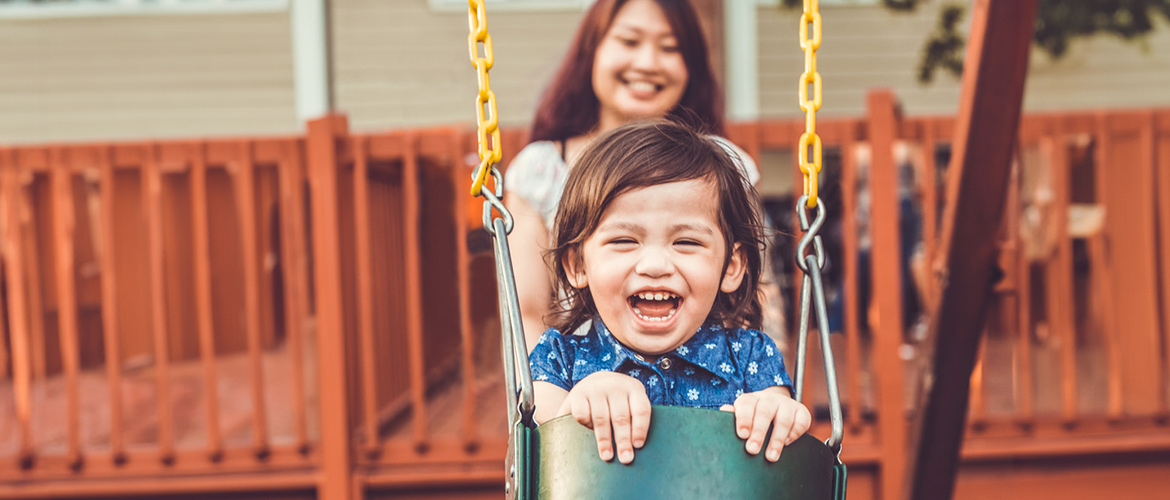Santa Maria Hostel in Houston is expanding its Caring for Two program to help more pregnant women and mothers of young children going through addiction with assistance from Blue Cross and Blue Shield of Texas.
The program provides support, education and tools to improve infant-child development, as well as maternal physical and mental health outcomes, so mothers can better bond with and care for their children. Services include parenting education and coaching, behavioral health screenings, mental health counseling, peer support, health care coordination, transportation and housing assistance.
Santa Maria received a $600,000 grant from BCBSTX’s Special Beginnings® maternal and infant health initiative, in addition to a $25,000 BCBSTX Blue Impact℠ grant, to support Caring for Two as it helps help more women and their children in Houston, while expanding to include services in Central Texas.
“There are no services in Austin — in the Travis County area — for women who want to bring their children with them while they access substance use treatment disorder services,” says Nadine Scamp, Santa Maria’s CEO. “There are a number of people there who are struggling. They deserve that opportunity to meet their recovery needs.”
The Special Beginnings initiative expands BCBSTX’s long-standing maternal and infant care programs increase access and reduce care gaps.
Meantime, BCBSTX’s Blue Impact grant program is part of a separate effort to support community investment focus areas, including the need to increase physical and mental health access, close care gaps and improve people’s lives.
“For decades, we have worked in close collaboration with local community organizations and partners, leveraging their knowledge, experience and talents on a local level to help support healthier communities,” says Sheena Payne, BCBSTX community investments director. “We’re committed to sustainable solutions with community partners to make a meaningful difference in the lives of those who need it most and to lay the groundwork for economic empowerment.”
Growth of the Caring for Two program comes as BCBSTX looks for opportunities to reduce maternal deaths and improve maternal and infant health outcomes. Substance use disorders contribute to 8% of the state’s pregnancy-related deaths, according to the most recent report from the Texas Maternal Mortality and Morbidity Review Committee.
“In order to move the needle and support Texas moms and babies, it will take a collective effort. We’re proud to support and work alongside local nonprofits by helping scale the impact they make to reduce barriers to needed health care and support services,” says Dr. Mark Chassay, BCBSTX vice president and chief medical officer. “We are scaling the ways we reach and serve not just our members but all Texans by further strengthening programs in the communities we serve.”
Founded in 1957, Santa Maria is one of Texas’ largest multi-site residential and outpatient substance use disorder treatment centers for women who are pregnant or parenting. It offers prevention and intervention, treatment, housing, employment skills and long-term recovery support and employs about 170 people, including parent or family coaches, nurse health educators and peer recovery coaches.
Participants work with recovery and parent coaches and treatment teams to develop recovery plans addressing their health, home, community and purpose.
Santa Maria provides services up to 18 months. In 2022, Santa Maria served more than 5,400 women, children and family members. Most women found permanent housing after leaving the program.
The Caring for Two program has significantly improved outcomes for families, including that of 37-year-old single mother whose five children were removed from her by the Texas Department of Family and Protective Services because of physical abuse. Counseling, education, support, case management and parenting classes and coaching helped her improve her parenting skills and learn to nurture and guide her children during visitations.
After reuniting with her children, she continued to receive coaching at her home.
“Parenting is not necessarily natural. Our coaches build on women’s strengths and help them get better,” Scamp says. “If we continue to provide support in a family’s natural environment, we can prevent substance use in the next generation. We’re not only healing, we’re ending a cycle.”

